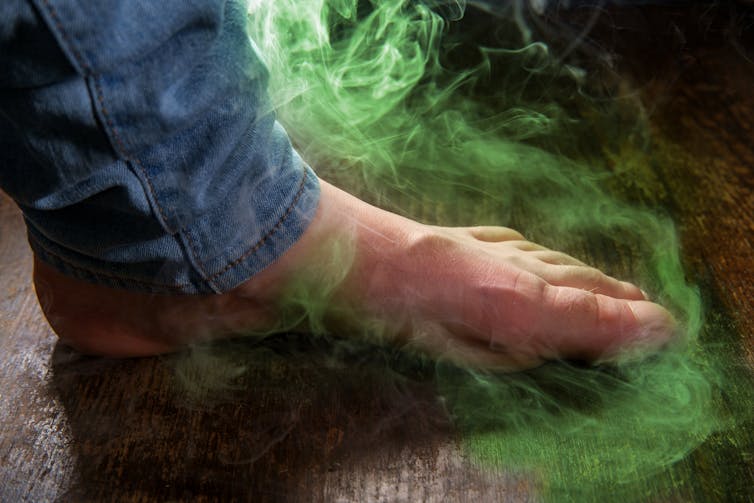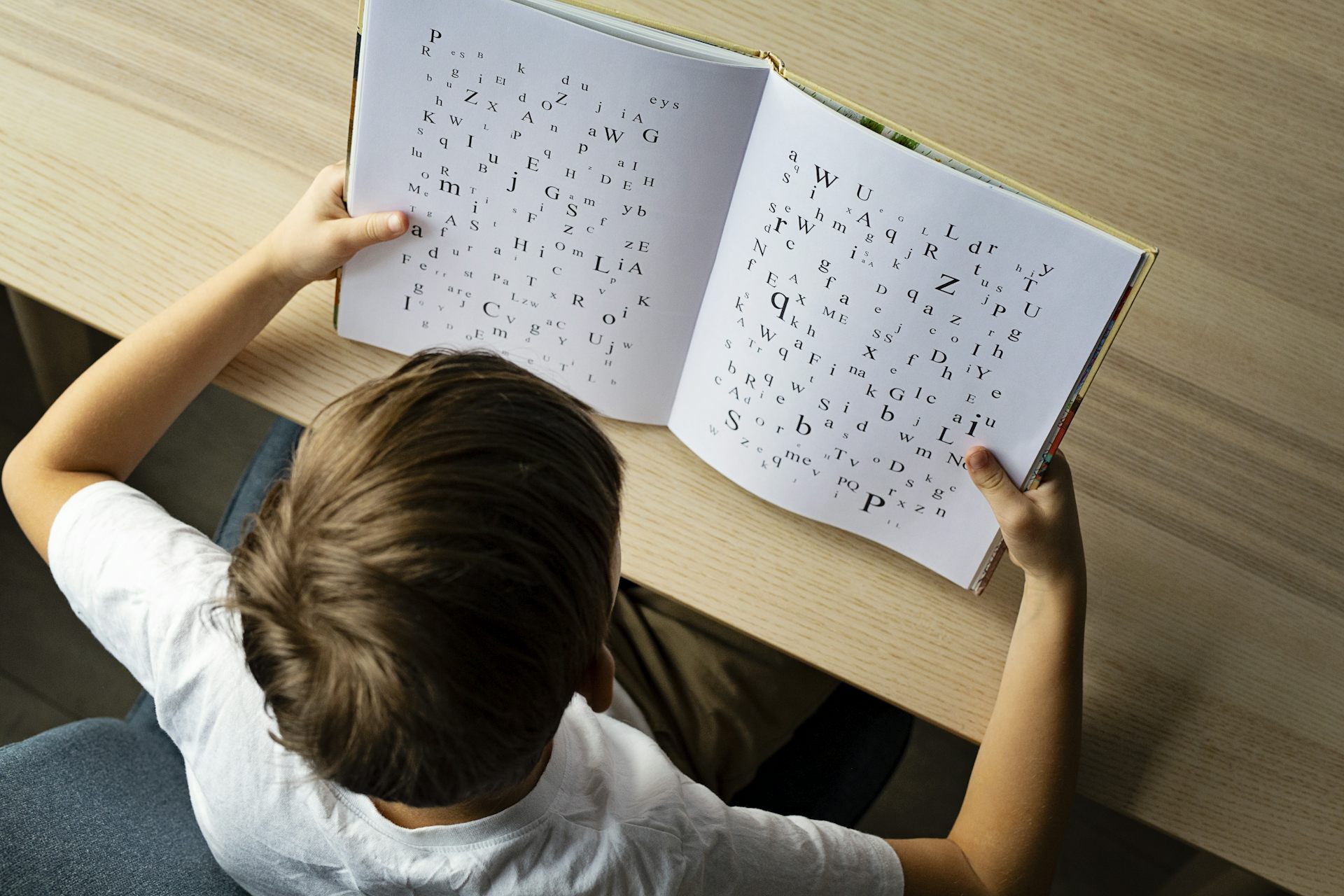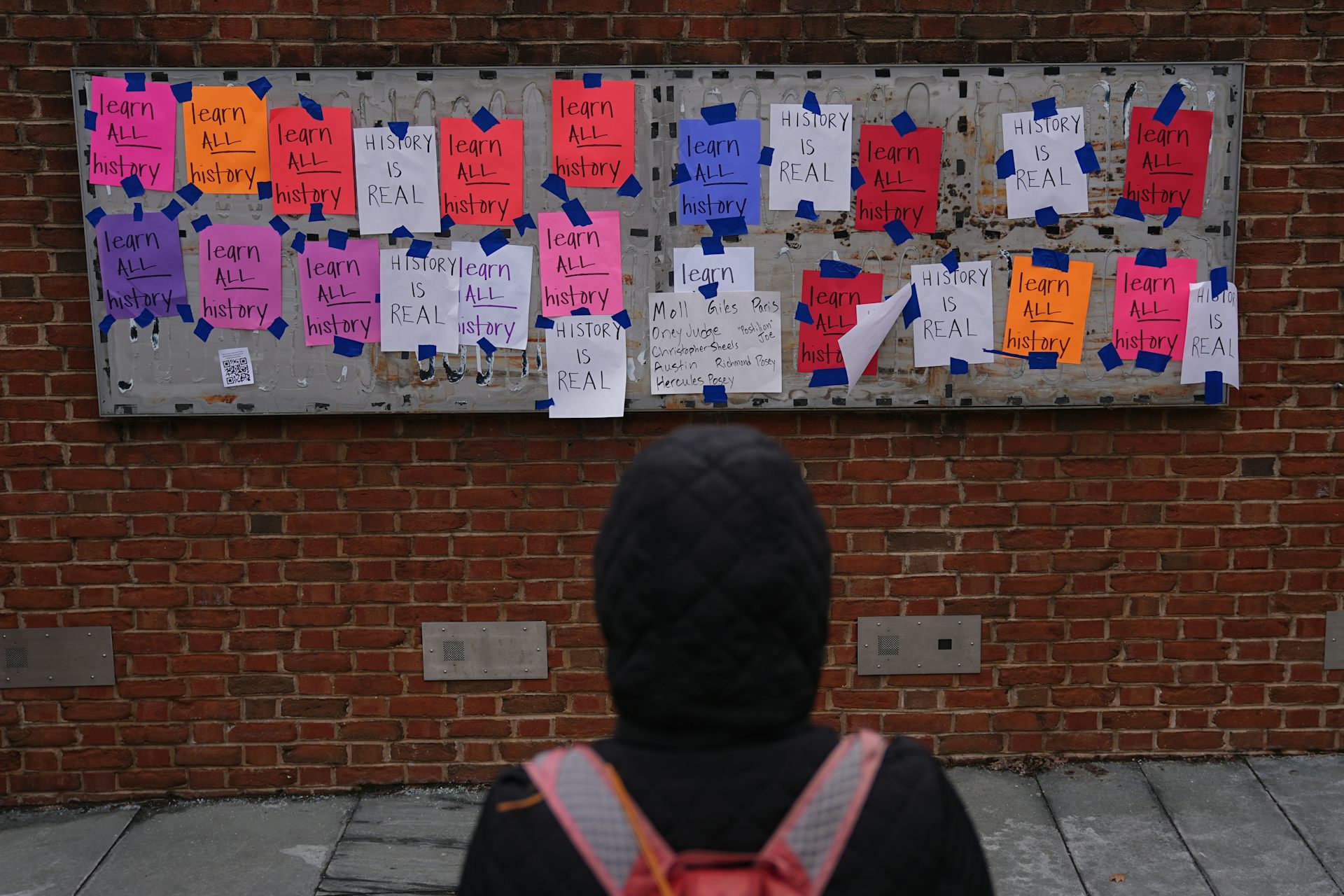Curious Kids: Why do feet stink by the end of the day?
Sweaty feet and certain cheeses have something in common that makes them reek – can you guess what it is?


Curious Kids is a series for children of all ages. If you have a question you’d like an expert to answer, send it to CuriousKidsUS@theconversation.com.
Why do feet stink by the end of the day? – Helen E., age 6, Somerville, Massachusetts
When I was a kid, our family would end the day by relaxing in front of the TV after dinner. Everyone would have a seat, take off their shoes and put up their feet. Before long, a strange and unsavory aroma invaded our noses. Sometimes our feet smelled so bad that my dad would joke, “Who cut the cheese?”
That seems like an odd thing to say, because cheese tastes good! But some cheeses, like Limburger cheese, smell nasty. When it is cut, many people hold their nose and run for the hills.
But people running to escape the stench of Limburger cheese may be in for an unpleasant surprise when they take their sneakers off later. All that running would make their feet sweat, and sweaty feet often reek like smelly cheese.
What’s the connection?
It comes down to a type of bacteria called Brevibacterium linens. Bacteria are very tiny creatures that can be seen only with a microscope. There are many different kinds of bacteria found all over the world, including inside your body and on your skin. Some of these bacteria are germs that can make you sick, but most do not cause harm and can even be helpful.
Brevibacterium linens are harmless bacteria found on people’s skin – they eat up skin cells that have died. Normally, these bacteria do not produce much of an odor because there aren’t too many of them.
But when you wear shoes, your feet get warm and moist. Your foot sweat contains salt, which these bacteria love. Under these conditions, a little Brevibacterium linens can become a lot of Brevibacterium linens munching on your feet.
And like anything else that eats, these bacteria make smelly waste. It is their waste that gives sweaty feet their funky odor: It contains stinky chemicals like those made by skunks and rotten eggs.

When people make cheese like Limburger, some of the Brevibacterium linens bacteria on their skin get left behind on the cheese. These bacteria aren’t picky eaters, so they’ll start gobbling up the surface of the cheese. As the bacteria eat the cheese, they make the shell around the cheese, called the rind. And they produce the same foul-smelling waste.
This is why feet can smell like cheese – they both have the same bacteria living on them. Other kinds of bacteria eat cheese too, and they make different chemicals that give the various cheeses their unique odors and flavors.
Because foot stench and cheese stench have the same source, some scientists have come up with a sneaky idea. Mosquitoes zero in on people by sensing these chemicals our skin bacteria produce. Researchers are experimenting with using Limburger cheese to trick the insect pests and lure them into traps so they can’t bite people.

Remember all this next time everyone’s relaxing, shoes and socks off, toes free. If someone’s little piggies smell like they went to market and bought a ton of stinky cheese, now you can explain what’s going on.
And don’t worry: Other than the offensive smell, stinky feet won’t hurt you. To get rid of the odor, keep them clean and dry. Wear fresh socks and use powder to absorb the sweat that skin bacteria need to grow.
Hello, curious kids! Do you have a question you’d like an expert to answer? Ask an adult to send your question to curiouskidsus@theconversation.com.
Please tell us your name, age and the city where you live. We won’t be able to answer every question, but we will do our best.
Bill Sullivan does not work for, consult, own shares in or receive funding from any company or organization that would benefit from this article, and has disclosed no relevant affiliations beyond their academic appointment.
Read These Next
OpenAI has deleted the word ‘safely’ from its mission – and its new structure is a test for whether
OpenAI’s restructuring may serve as a test case for how society oversees the work of organizations…
Nearly every state in the US has dyslexia laws – but our research shows limited change for strugglin
Dyslexia laws are now nearly universal across the US. But the data shows that passing a law is not the…
Martha Washington’s enslaved maid Ona Judge made a daring escape to freedom – but the National Park
Ona Judge was one of 9 people George Washington owned when he lived in the President’s House in Philadelphia.






